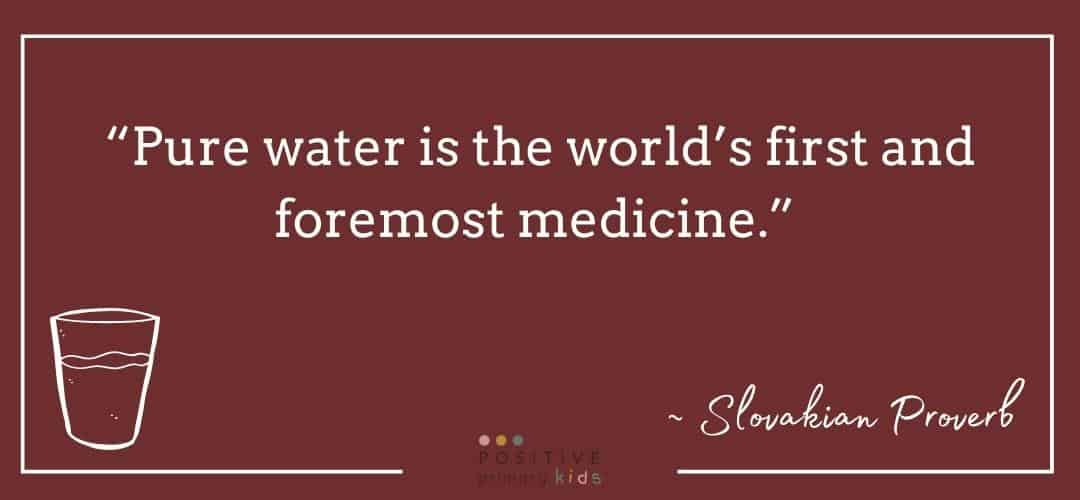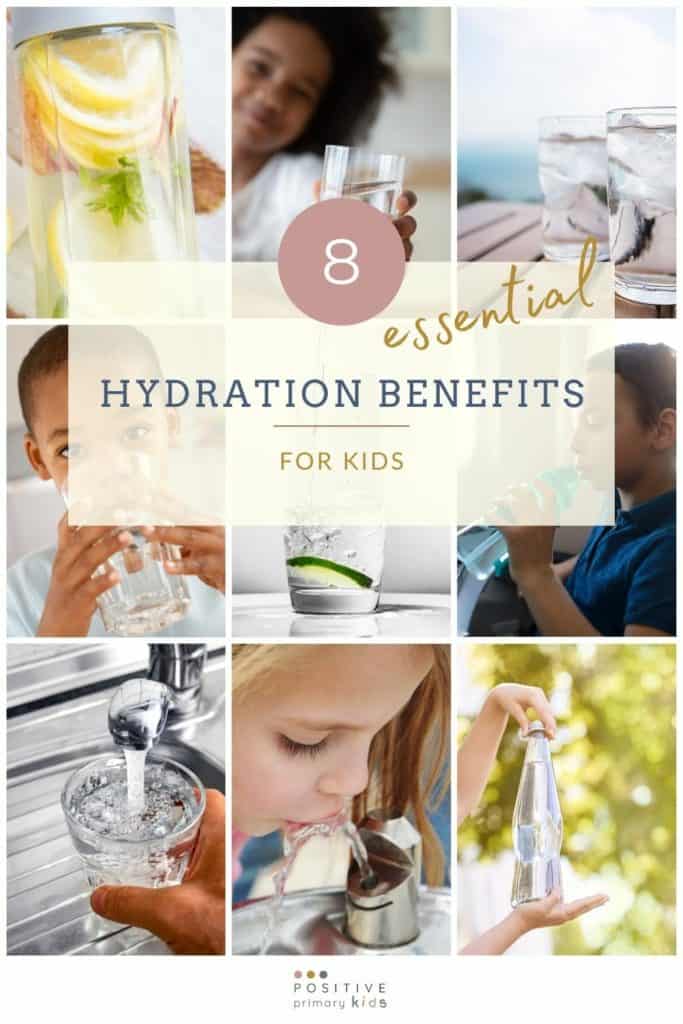8 Essential Benefits of Hydration in Children
Next week is ‘Nutrition and Hydration Week’, so now seems a great time to write about the benefits of hydration in children. Staying hydrated does so much more than just quench thirst.
Hydration is essential for overall health and wellbeing and plays an important role in learning and concentration too.
In this post…
you can jump straight to each section by clicking the links above
Heads up! This blog contains affiliate links. If you click and make a purchase, I’ll earn a small commission, which funds an occasional coffee ☕️ that I’ll enjoy whilst continuing to support your journey (at no extra cost to you)
I was reminiscing with a friend the other day about our school days and something came up that seems completely bizarre now.
We both remembered being in lessons on hot summer days, getting really thirsty and not being allowed to get a drink. It was really uncomfortable and impossible to concentrate. I even used to get nosebleeds from the heat. I don’t remember there ever being any access to drinking water in the classroom and the fountains – which were gross anyway – were either in the playground or corridor. Teachers would say, “If you go, everyone will want to go.” And that was that. We were denied access to water because it was inconvenient!
Fortunately, most schools allow kids to have water bottles with them and so they don’t have to touch grotty water fountains that barely trickle. All of the primary schools I’ve taught in have also had drinking water available in classrooms. I can’t remember it ever being particularly disruptive!

The Importance of Hydration
You hear all the time that staying hydrated and drinking plenty of water is essential for good health, but why is that? How does it help you stay healthy and function well?
Water makes up on average 60% of the body weight of children aged 1 to 12. This proportion is a little lower in adults.
In the body, water is stored inside cells, in the fluid surrounding cells, in organs, muscles, bones and blood plasma. It is essential for the proper functioning of every single system and process in your body.
Your body loses water when you breathe, sweat, urinate and defecate. Lost water needs to be replaced to maintain the water balance and keep us healthy. When the water balance is off and you lose more than you replace, dehydration occurs. Dehydration can quickly become a serious problem.
Dehydration occurs more quickly in children than adults. There are several reasons for this, including:
- Biological processes in children use more water
- Children’s kidneys aren’t as efficient at conserving water
- Water is a greater proportion of their body weight
- They can’t always tell that they are thirsty because their awareness mechanism hasn’t fully developed yet
- Children often rely on adults to provide water for them



How Much Water Should Children Drink?
The British Dietetic Association recommends that children between the ages of 4 and 8 should drink 1280ml per day. For older children between 9 and 13 years old, they suggest that boys should drink 1680ml and girls should drink 1520ml per day.
Often people wait until they are thirsty before grabbing a drink of water, but the sensation of thirst is your body telling you that you are already dehydrated. It’s best to keep drinking throughout the day and to drink even more when you are hot or exercising.
If you struggle to encourage your child to drink enough water, have a look at these 7 ideas to help keep them hydrated.
8 Benefits of Hydration for Children’s Wellbeing and Brain Function
The smallest drop in the water balance in your body can affect physical health, mood, energy and concentration. Just a 1-2% decrease in body water can impair brain function!
Let’s take a look at some of the other important ways drinking water benefits children:
- Mood – studies suggest that people who are mildly dehydrated are likely to feel less calm, content or happy and may be easily confused, anxious and experience negative emotions.
- Energy & tiredness – Hydration makes your heart’s job of pumping blood around the body easier so that oxygen and nutrients can reach your organs and cells. Water increases blood volume, which increases blood pressure so it’s easier for the heart to pump.
- Concentration and memory – This goes hand in hand with the previous point. I’ve talked before about energy and tiredness impact learning. If dehydration is making you tired, then concentration, memory and even movement become impaired.
- Vision – Hydration helps to keep eyes moist, comfortable and healthy. Mild dehydration often causes gritty, tired feeling eyes and blurry vision.
- Brain function – Water carries oxygen to the brain which allows it to communicate with the rest of your body. Studies also support a link between access to water and academic performance. For example, researchers found that students sitting exams who brought a bottle of water with them achieved an average of 5% higher marks compared to those with no water.
- Body temperature regulation – Sweating cools you down when you are hot. Staying hydrated replaces the water lost through perspiration.
- Digestion and nutrient absorption – Drinking before, during and after eating helps to break down food into vitamins, minerals and nutrients which you absorb for the body to use. Hydration also helps to prevent constipation.
- Feeling generally ‘well’ – Even mild dehydration can cause symptoms from dizziness and headaches to muscle cramps and indigestion. Regularly drinking water throughout the day helps keep you healthy and energised.
Enjoying this topic? Here are some related posts:
Final thoughts on the benefits of hydration
So as you’ve seen, hydration is absolutely crucial for health and concentration. It’s difficult enough for us adults to drink enough water. I always have a glass of water in front of me at work and carry a bottle full everywhere. Getting children to drink plenty of water can be another challenge altogether, but if you lead by example and encourage them to get into the habit of drinking regularly, they will reap the benefits.
Kids are at school five days a week for six-plus hours, which is a reeeeeally long time to stay energised and focussed. Set them up for a good start before they head off for the day by making sure they have a glass of water with their breakfast and they grab a water bottle on the way out.
Grab a glass for yourself too!
Do you have any tips for getting more water into your kids?
So many kids don’t really enjoy drinking water, but there are lots of other ways to hydrate them with other drinks and food that has high water content.
Do you have any tips or tricks to share with other parents about keeping kids hydrated or keeping track of how much they are drinking?
Let me know in the comments below….
Recommended Reading On This Topic:
- Nutrition and Hydration Week
- The Hydration Equation: Update on Water Balance and Cognitive Performance – National Centre for Biotechnical information
- Hydration for Health






